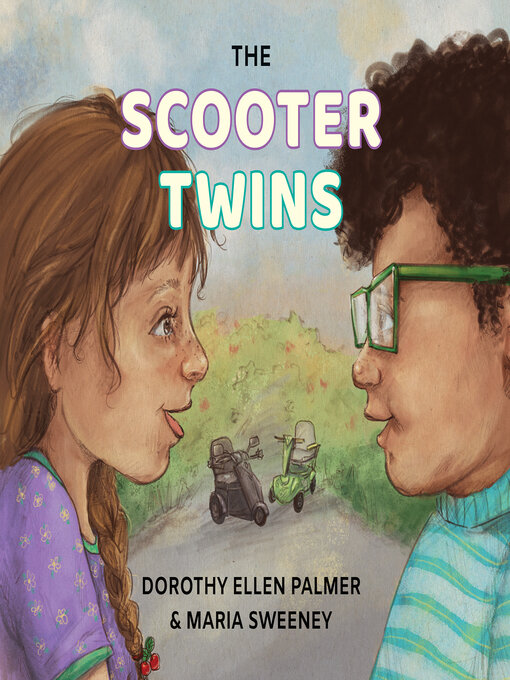Melanie and Melvin may be twins, but they couldn't be more different.
Melanie is LOUD and Melvin is quiet. Melvin likes frogs and Melanie loves MOTORCYCLES! When the twins learn that they will get their very own mobility scooters, Melanie is excited to race to school, but Melvin is worried he'll fall — and that people will stare. And there's a problem: Grandma can't afford the scooters without selling one of Mom's treasured paintings, one of the only things the twins have left to remember their parents.
In the process of getting their scooters, Melanie and Melvin have to navigate challenges that people with disabilities face on a daily basis: rudeness from a store clerk and products that aren't made with kids in mind. But in the end, Melanie and Melvin choose scooters that are just right for them and make moving through their neighborhood a new adventure.
Written by disability advocate and mobility scooter user Dorothy Ellen Palmer, and illustrated by Maria Sweeney, The Scooter Twins is an #ownvoices story that shares the joys and challenges of disabled childhood, and offers many kids who get new wheels the opportunity to find themselves in the pages of a book.
Key Text Features
illustrations
Correlates to the Common Core States Standards in English Language Arts:
CCSS.ELA-LITERACY.RL.2.3
Describe how characters in a story respond to major events and challenges.
CCSS.ELA-LITERACY.RL.4.3
Describe in depth a character, setting, or event in a story or drama, drawing on specific details in the text (e.g., a character's thoughts, words, or actions).


